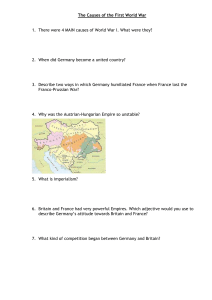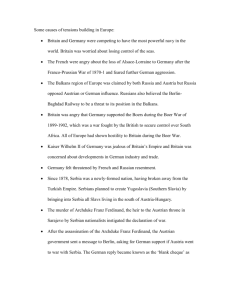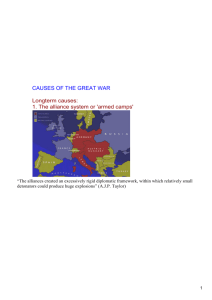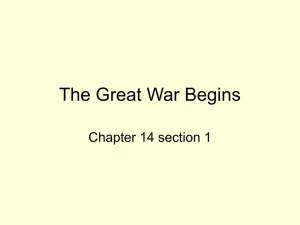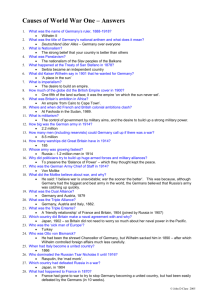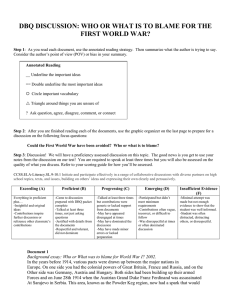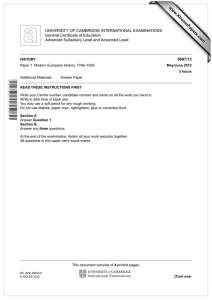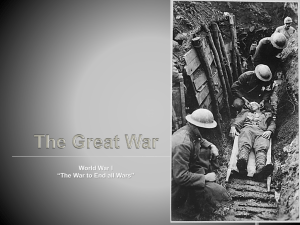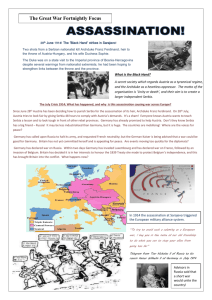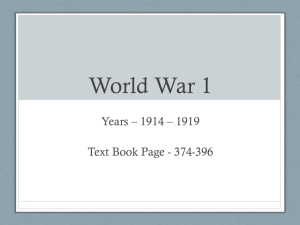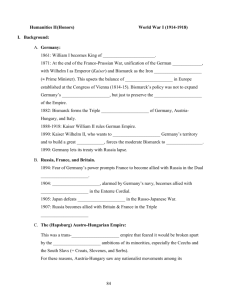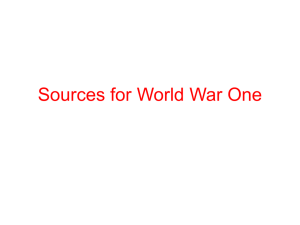Militarism: This is what the Emperor of Germany, Wilhelm II, said in
advertisement
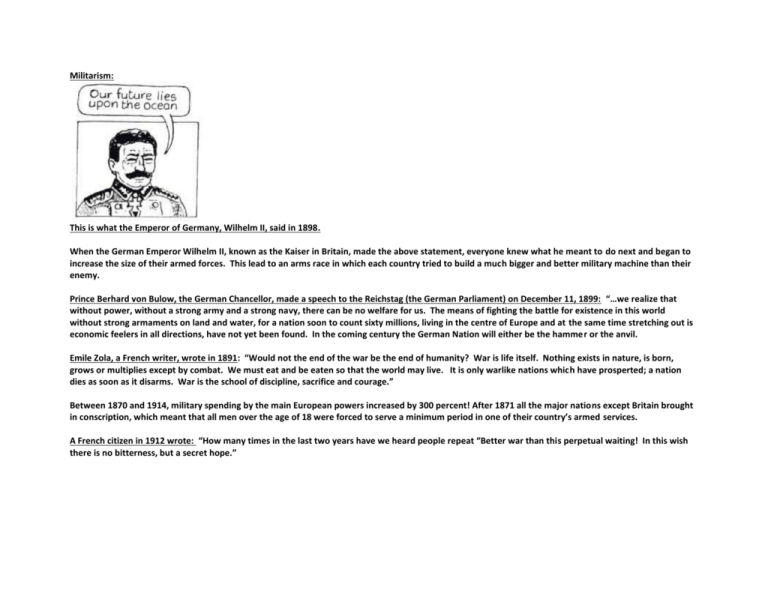
Militarism: This is what the Emperor of Germany, Wilhelm II, said in 1898. When the German Emperor Wilhelm II, known as the Kaiser in Britain, made the above statement, everyone knew what he meant to do next and began to increase the size of their armed forces. This lead to an arms race in which each country tried to build a much bigger and better military machine than their enemy. Prince Berhard von Bulow, the German Chancellor, made a speech to the Reichstag (the German Parliament) on December 11, 1899: “…we realize that without power, without a strong army and a strong navy, there can be no welfare for us. The means of fighting the battle for existence in this world without strong armaments on land and water, for a nation soon to count sixty millions, living in the centre of Europe and at the same time stretching out is economic feelers in all directions, have not yet been found. In the coming century the German Nation will either be the hammer or the anvil. Emile Zola, a French writer, wrote in 1891: “Would not the end of the war be the end of humanity? War is life itself. Nothing exists in nature, is born, grows or multiplies except by combat. We must eat and be eaten so that the world may live. It is only warlike nations which have prosperted; a nation dies as soon as it disarms. War is the school of discipline, sacrifice and courage.” Between 1870 and 1914, military spending by the main European powers increased by 300 percent! After 1871 all the major nations except Britain brought in conscription, which meant that all men over the age of 18 were forced to serve a minimum period in one of their country’s armed services. A French citizen in 1912 wrote: “How many times in the last two years have we heard people repeat “Better war than this perpetual waiting! In this wish there is no bitterness, but a secret hope.” European Military Spending and the Size of their Armies, 1913 - 14. Country Soldiers Money Spent in Millions Italy Russia Austria Germany France Britain 750,000 1,250,000 750,000 8,250,000 1,500,000 750,000 10,000,000 15,500,000 22,500,000 60,000,000 40,000,000 50,000,000 1870-1914 Reynold’s Newspaper, London, March 9, 1913 Caption for Political Cartoon: “Germany has suddenly announced her determination to increase her already monstrous armaments by special and additional expenditure of fifty million pounds.” Bertrand Russell, a British philosopher wrote in August 1914: “I spent the evening of August 3, 1914 walking round the streets, especially in the neighborhood of Trafalgar Square, noticing cheering crows, and making myself sensitive to the emotions of passersby. During this and the following days I discovered to my amazement that average men and women were delighted at the prospect of war.” Nationalism: Newspaper run in 1912 by Colonel Dragutin Dimitrevic, head of the Serbian military intelligence and founder of the secret society, “Union or Death” also known as the Black Hand by its opponents. “The war between Serbia and Austria…is inevitable. If Serbia wants to live in honor, she can only do this by war. This war is determined by our obligation to our traditions and the world of culture. This war derives from the duty of our race which will not permit itself to be assimilated. This war must bring about the eternal freedom of Serbia, of the South Slavs, of the Balkan peoples. Our whole race must stand together to halt the onslaught of these aliens from the north.” A 1908 Political cartoon from the French Parisian Petit Journal shows Franz Josef grabbing Bosnia -Herzegovina and an independent Bulgaria being torn away from Turkey. Turkey looks on dismayed. Alliances: British Propaganda Postcard: Imperialism: German Propaganda Poster 1917: “Freedom of the Seas” and “England is the Bloodsucker of the World” European Countries Empires in 1914: Country Population of Country Russia 139 million Austria 50 million Germany 63 million France 39.6 million Great Britain 40.8 million Population of Colonies none none 15 million 63 million 390 million Area in km2 of Colonies none none 2.5 million 11 million 27 million Paul Leroy Beauliey, a French political economist who lived from 1843-1916 wrote that for France colonization had become: “a matter of life and death: either France will become a great African power or in a century or two she will be no more than a secondary European power…”
